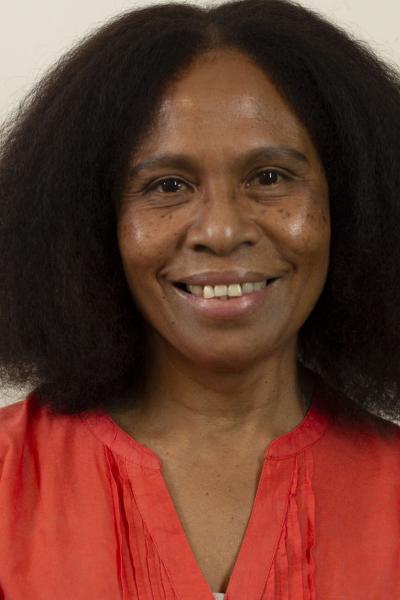
Jenny is a Nalik-speaking woman from the Moxokamade babanga (hornbill) clan of Madina village, northern New Ireland, Papua New Guinea. Her membership of the Moxokamade hornbill clan is through her mother’s line. Out of sub-clan and clan obligations and responsibilities and abina (place) care and well-being, her Moxokamade, babanga (hornbill) clan initiated her as a Wangpaang, (message-bearer) and go between Meimaai (Orator) and clan and sub-clan members. With this position, she was encouraged and given permission by a core group of decision-makers of seven clans in Madina to work with and alongside members of the community to research and articulate in writing the meanings they give to land in our three-phased mortuary ceremonies (a Punguva, a Nges Gom and Malagan) from a sek abina (people of the place) perspective. This PhD research is done through the Department of Asia and Pacific History and is a component of a bigger community project run by the Madina community-based NGO, Recreating the Village. Some of the important work that has benefited Jenny's community from the current research has been the re-establishment of the Madina Aipopong Language and Culture School, recording of community clan-land genealogies and stories, a work-in-progress Nalik dictionary and teaching Nalik online to Madina children living in Australia, United Arab Emirates and the United States. I joined the Department of Asian and Pacific Languages in 2018 as a Pacific Language Developer tasked to develop the online Tok Pisin language minor courses. In 2019, Jenny took up the position of Lecturer and Convenor of the Tok Pisin Language program at the ANU School of Culture, History & Language. In her spare time as an artist Jenny enjoys creating 3-dimensional sand paintings. She absolutely loves watching birds, listening to their unique sounds and connecting her hands back to the land in her backyard.